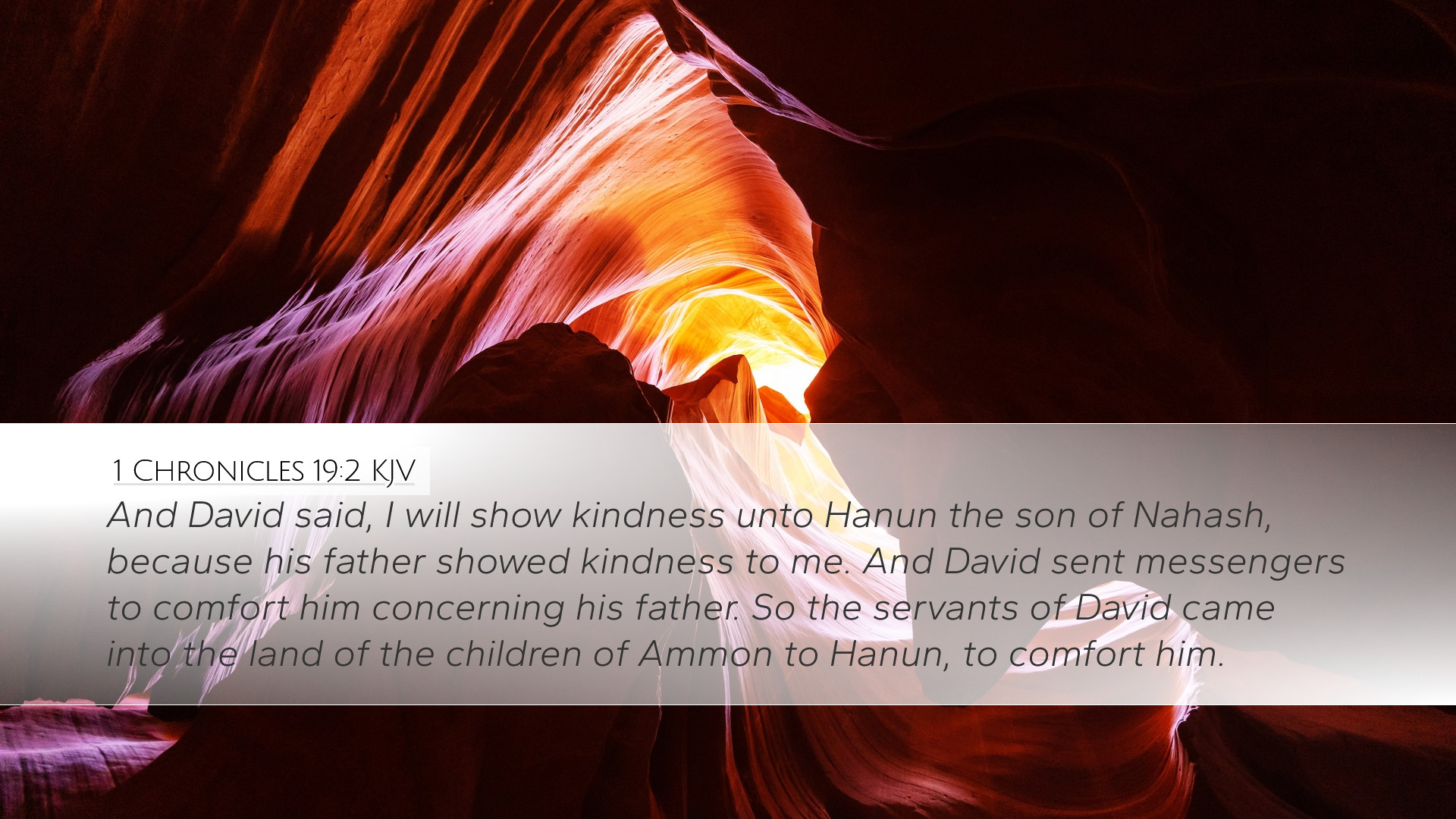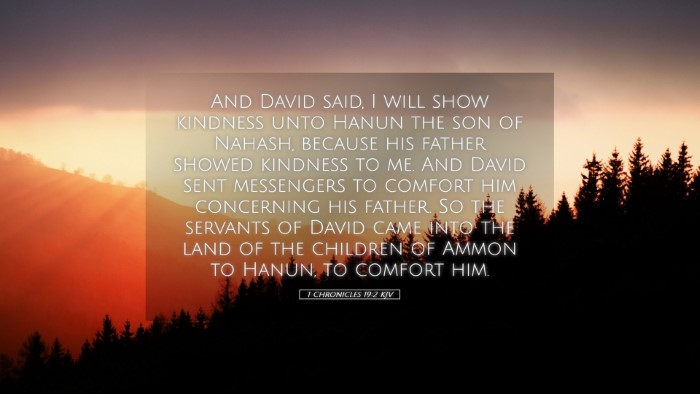Commentary on 1 Chronicles 19:2
Verse: 1 Chronicles 19:2 - "And David said, I will show kindness to Hanun the son of Nahash, because his father showed kindness to me. And David sent messengers to comfort him concerning his father. So the servants of David came to Hanun in the land of the children of Ammon to comfort him.
Introduction
This verse marks a significant relational initiative by King David, showcasing his intentions to foster goodwill and peace. The context involves diplomatic relations between Israel and Ammon, and David's act of kindness is a pivotal moment that sets the tone for subsequent interactions.
1. The Motivations Behind David's Actions
David's intention to show kindness to Hanun is rooted in a previous relationship with Hanun's father, Nahash. The kindness received from Nahash, although not explicitly detailed in the text, suggests a bond that David values.
- Historical Context: Nahash was the king of Ammon and had shown favor to David during a difficult time, possibly alluding to a time when David was fleeing from Saul.
- The Principle of Kindness: David's approach emphasizes the significance of reciprocating kindness. This mirrors teachings found elsewhere in Scripture, where individuals are encouraged to treat others with love and compassion, reflecting God’s character.
2. The Significance of Sending Messengers
David’s decision to send messengers, rather than visiting Hanun in person, carries symbolic weight.
- Diplomatic Gesture: Sending emissaries can be interpreted as a diplomatic gesture that respects Hanun’s position as the king, demonstrating deference and respect.
- Practicality of Communication: At this historical juncture, communication was critical, and messengers played an essential role in establishing and maintaining alliances.
3. The Theological Implications
David's act of kindness holds theological implications that resonate throughout the narrative of the Scriptures.
- God's Covenant Faithfulness: David's kindness reflects God’s covenantal love and mercy, key themes in the Old Testament. Just as God shows steadfast love, David mirrors that to Hanun.
- Pursuing Peace: There is a strong emphasis on maintaining peace among nations, which is a recurring theme in the Bible, illustrating that godly leadership seeks to resolve conflicts rather than exacerbate them.
4. Contrast with Hanun’s Reaction
While David intends benevolence, the response from Hanun is critical to understanding the narrative and its implications.
- Challenge of Perception: Hanun’s interpretation of David’s kindness is instrumental; he perceives their gesture as one of espionage rather than goodwill, which ultimately leads to conflict.
- Lessons in Leadership: This incident underscores a leader's vulnerability. David’s goodwill, while noble, does not guarantee a favorable response, teaching the importance of discernment and wisdom in relationships.
5. Application for Today’s Context
The principles extracted from this verse remain relevant today for pastors, scholars, and students alike.
- Kingly Responsibility: Leaders are called to demonstrate kindness and seek peace, reflecting the character of God in their decision-making.
- The Importance of Intentions: As believers, it is crucial to align our actions with the intention of building relationships, recognizing that our motives may be misunderstood at times.
- Diplomacy in Ministry: In church leadership and community engagement, the importance of diplomacy and establishing trust cannot be understated. David's example teaches us the value of nurturing connections despite potential misunderstandings.
Conclusion
1 Chronicles 19:2 provides rich insight into the complexities of relationships, leadership, and divine character. Through David's intentions and the responses of others, we see a profound narrative about the consequences of kindness and the pursuit of relational harmony.


